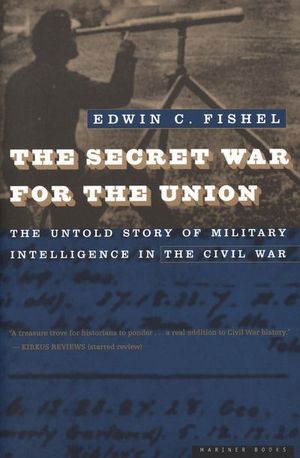The Secret War for the Union
Published by Houghton Mifflin Harcourt
“A treasure trove for historians . . . A real addition to Civil War history” (Kirkus Reviews, starred review).
At the end of the American Civil War, most of the intelligence records disappeared—remaining hidden for over a century. As a result, little has been understood about the role of espionage and other intelligence sources, from balloonists to signalmen with their telescopes.
When, at the National Archives, Edwin C. Fishel discovered long-forgotten documents—the operational files of the Army of the Potomac’s Bureau of Military Information—he had the makings of this, the first book to thoroughly and authentically examine the impact of intelligence on the Civil War, providing a new perspective on this period in history. Drawing on these papers as well as over a thousand pages of reports by General McClellan’s intelligence chief, the detective Allan Pinkerton, and other information, he created an account of the Civil War that “breaks much new ground” (The New York Times).
“The former chief intelligence reporter for the National Security Agency brings his professional expertise to bear in this detailed analysis, which makes a notable contribution to Civil War literature as the first major study to present the war’s campaigns from an intelligence perspective. Focusing on intelligence work in the eastern theater, 1861–1863, Fishel plays down the role of individual agents like James Longstreet’s famous ‘scout,’ Henry Harrison, concentrating instead on the increasingly sophisticated development of intelligence systems by both sides. . . . Expertly written, organized and researched.” —Publishers Weekly
“Fundamentally changes our picture of the secret service in the Civil War.” —The Washington Post
BUY NOW FROM
COMMUNITY REVIEWS

